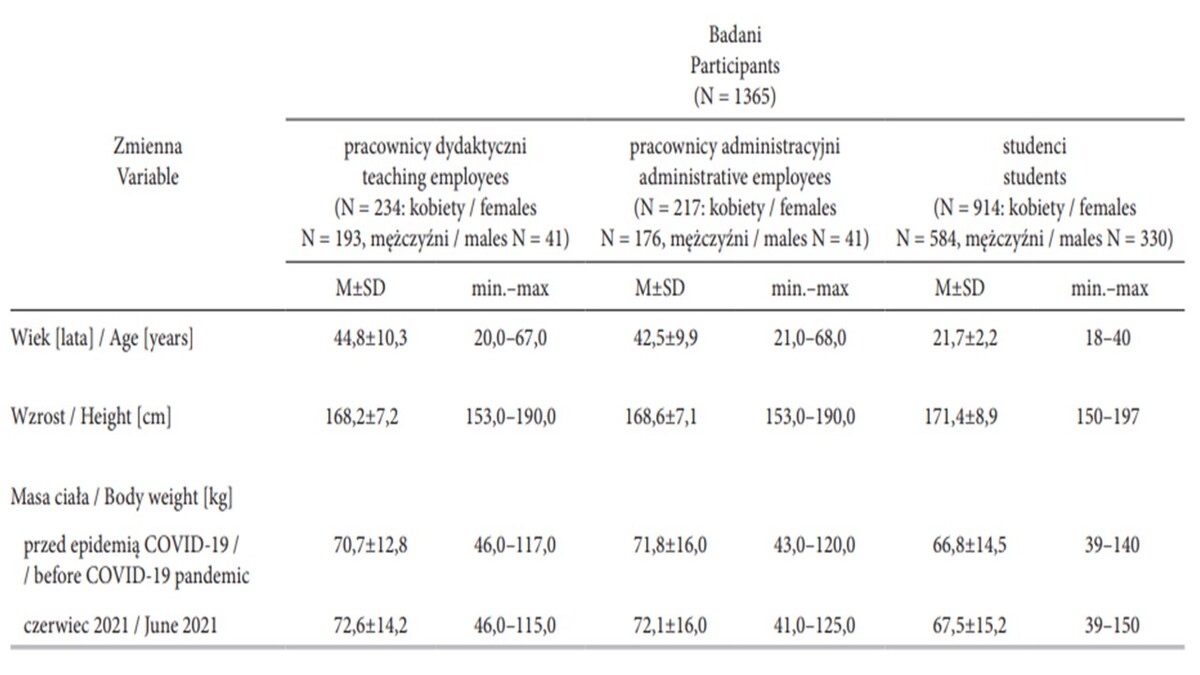Online first
Current issue
Archive
Most cited in 2024
About the Journal
Editorial Office
Editorial Board
Copyright and self-archiving policy
Information clause on the processing of personal data
Declaration of accessibility
Instructions for Authors
Instructions for Reviewers
Contact
Reviewers
2024
2023
2022
2020
2021
2019
2018
2017
2016
2015
2014
2013
Editing and translations
ORIGINAL PAPER
The influence of working/learning remotely on the prevalence of musculoskeletal complaints in a group of university staff and students
1
Instytut Medycyny Pracy im. prof. J. Nofera / Nofer Institute of Occupational Medicine, Łódź, Poland (Zakład Środowiskowych i Zawodowych Zagrożeń Zdrowia / Department of Environmental and Occupational Health Hazards)
2
Uniwersytet Medyczny w Łodzi / Medical University of Lodz, Łódź, Poland (Wydział Lekarski / Faculty of Medicine)
Online publication date: 2023-02-27
Corresponding author
Kinga Polańska
Instytut Medycyny Pracy im. prof. J. Nofera, Zakład Środowiskowych i Zawodowych Zagrożeń Zdrowia, ul. św. Teresy 8, 91-348 Łódź
Instytut Medycyny Pracy im. prof. J. Nofera, Zakład Środowiskowych i Zawodowych Zagrożeń Zdrowia, ul. św. Teresy 8, 91-348 Łódź
Med Pr Work Health Saf. 2023;74(1):63-78
KEYWORDS
ergonomicCOVID-19computer workstationsremote working and e-learningmusculoskeletal disordersuniversity students and workers
TOPICS
- physiological assessment of the adjustment/maladjustment of workstations to the mental and physical capacity of the employees
- assessment and consequences of the loads affecting the motor system on different workstations
- impact of harmful factors on the human body
- health promotion
- prophylactic programs
- prevention programs in the population
ABSTRACT
Background: The COVID-19 pandemic has led to a fundamental change in the lifestyle and the ways of learning and working patterns which in turn might lead to health consequences including musculoskeletal disorders. The aim of this study was to evaluate the conditions of e-learning and remote working and the impact of the learning/working modality on the occurrence of musculoskeletal symptoms among university students and workers in Poland. Material and Methods: This study covered 914 students and 451 employees who filled in an anonymous online questionnaire. The questions covered 2 periods: before the COVID-19 pandemic and during the period from October 2020 to June 2021 and were aimed at obtaining information about lifestyle (including physical activity, perceived stress and sleep pattern), ergonomic of computer workstations, the incidence and severity of musculoskeletal symptoms and headaches. Results: During the outbreak, the severity of musculoskeletal complaints increased significantly in the teaching staff group (3.2±2.5 vs. 4.1±3.0 VAS pts), in the administrative staff group (3.1±2.5 vs. 4.0±3.1 VAS pts), and in the student group (2.8±2.4 vs. 3.5±2.8 VAS pts). The average level of burden and risk of musculoskeletal complaints was revealed by the assessment using the ROSA method, in all 3 study groups. Conclusions: In light of current results, it is very important to educate people on the rational use of new technology devices, including the appropriate design of computer workstations, planning breaks and time for recovery and physical activity. Med Pr. 2023;74(1):63–78
Share
RELATED ARTICLE
We process personal data collected when visiting the website. The function of obtaining information about users and their behavior is carried out by voluntarily entered information in forms and saving cookies in end devices. Data, including cookies, are used to provide services, improve the user experience and to analyze the traffic in accordance with the Privacy policy. Data are also collected and processed by Google Analytics tool (more).
You can change cookies settings in your browser. Restricted use of cookies in the browser configuration may affect some functionalities of the website.
You can change cookies settings in your browser. Restricted use of cookies in the browser configuration may affect some functionalities of the website.






